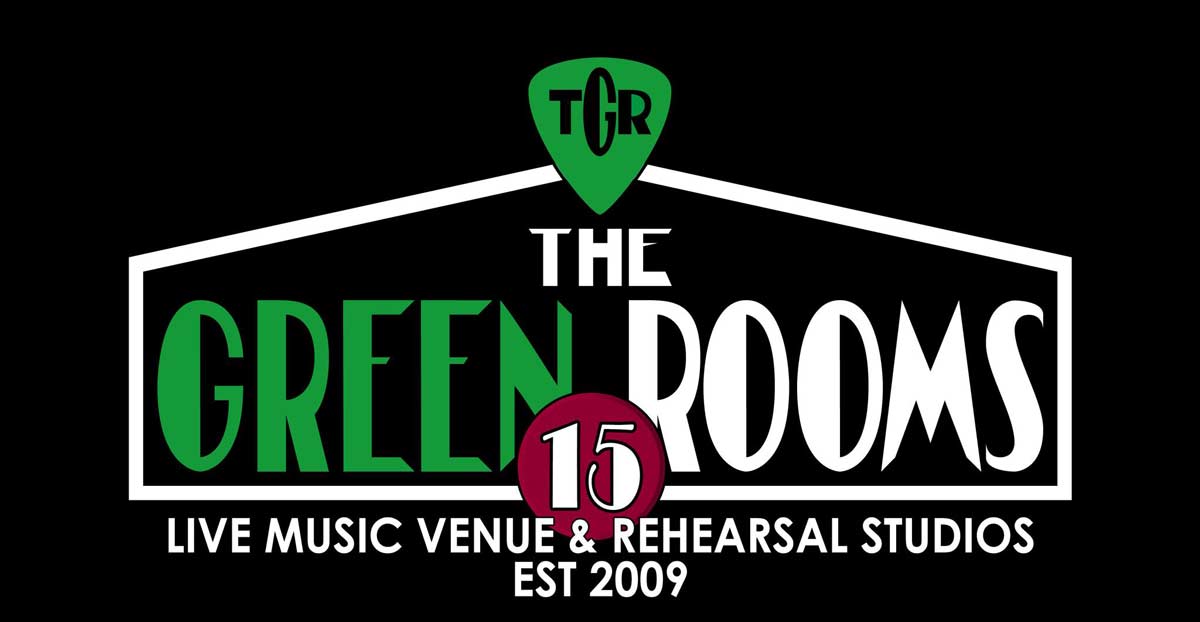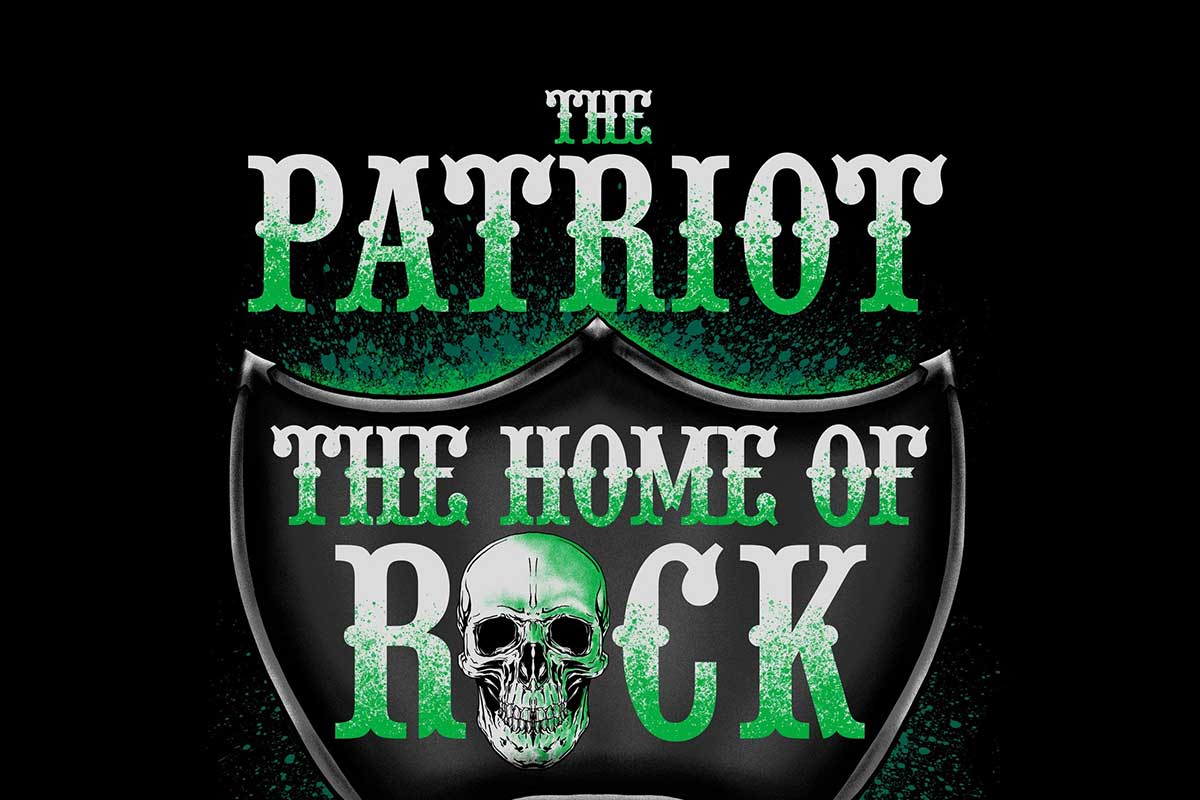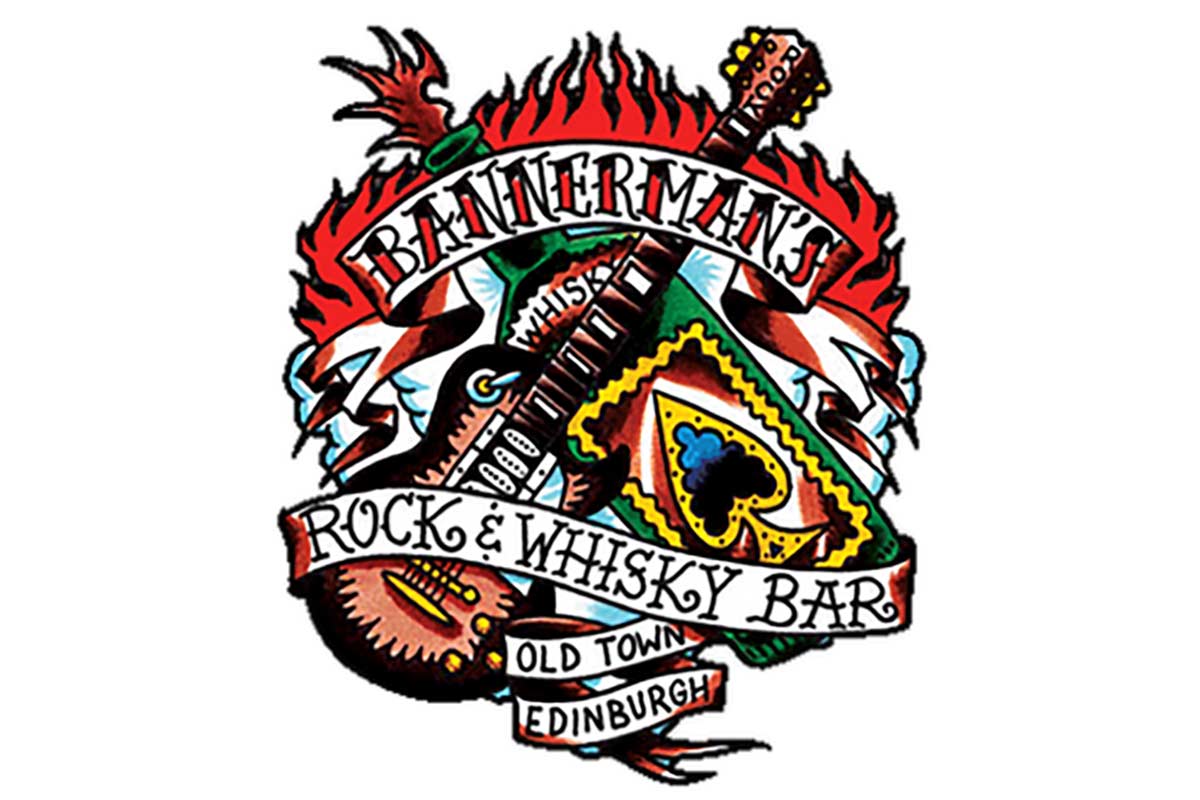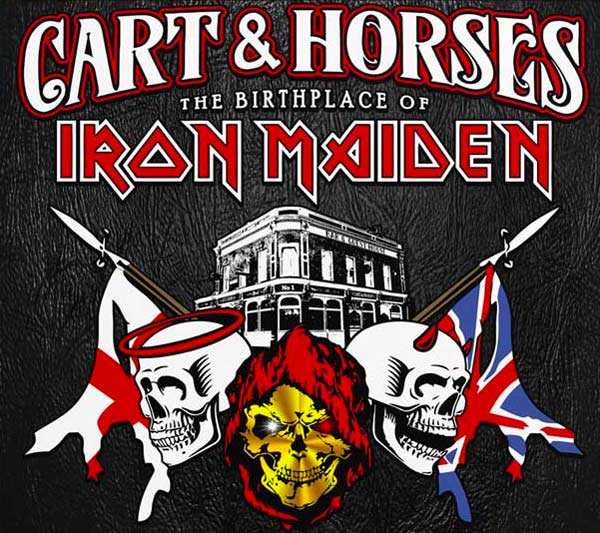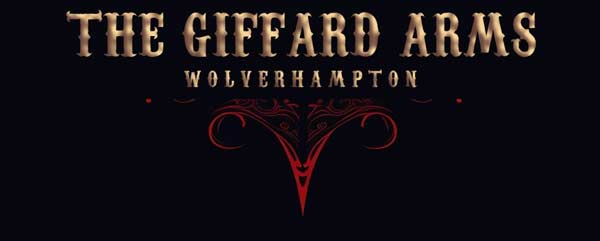Bernie Tormé is back! Mind you, he’s never really gone away, but he has released his first solo album in fifteen years, and I believe I even called it, “an absolute all time rock guitar classic.”
Tony Conley
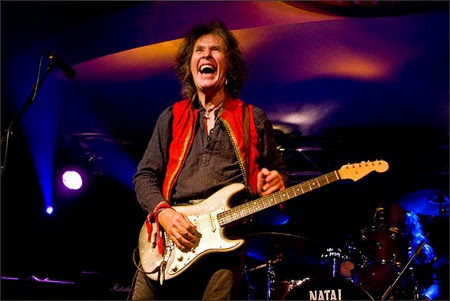
© Steve Johnston
It’s a brilliant double album filled with great songs, impassioned vocals, and a tremendous amount of stunning guitar work. Making things even more exceptional is the fact that Bernie’s album was the result of a super successful crowd funding project with PledgeMusic. Read our album review here.
After I heard the record, I decided that I had to hear more about the coming and goings of this record, along with a smattering of reminiscences of the guitarist’s stints with Ozzy Osbourne, and Gillan, with of course, Deep Purple frontman, Ian Gillan. Sticking with the DIY methods of today, I got ahold of Bernie directly, and he was kind enough to consent to my curiosities. It turns out that Mr Tormé is a treasure trove of wit, wisdom, and rock biz experience, and anyone who reads the following will walk away as pleased as I.
Before you read this, you should first maybe buy and listen to ‘Flowers & Dirt’ – it’s a brilliant piece of work that covers a lot of ground and will surely tickle your ears, and your soul. I never do this, but you can buy it here: http://bernietorme.bandcamp.com – it’s that good.
‘Flowers & Dirt’. What’s the meaning?:
Bernie Tormé: “Well, I’m not sure it has any, to be honest!
“I kind of had a plan to do a double album, and it was at the point where I had the pledge running, so I asked the people who had pledged, ‘Have you any ideas for an album title,’ and I got back about a million ideas, and I have to say, about 999,000 of them, etcetera, were utter and complete shit, hahaha! Like, ‘Bernie’s New Album!,’ and things like that.
“So, I went off, and I asked my daughter and my son, an all of that, I was scratching my head, and I thought, ‘Yeah, ‘Flowers & Dirt’,’ that’s a nice title, because it’s pretty, and it’s ugly. It was sort of… I was thinking of an album that’s two discs – it hasn’t really panned out that way, to be honest. Both of them are a mixture. But that was kind of the plan.”
Ok – we got that cleared up. You’ll notice a lot of assorted ‘hahahas’ spindled throughout this piece, as Bernie is a man of good humour who enjoys a laugh, and I want to convey just what a pleasure we had during this conversation. Next I wanted to know the genesis of the idea of crowd funding. More and more musicians are finding that the best record company they ever could hope for are their own fans, but it’s a path fraught with anxiety and fears – you’re never more vulnerable than when you have your hand out, and I congratulate those who face this and fearlessly move forward to keep their art alive:
Bernie Tormé: “Initially, it was from Ginger Wildheart, who is, you know, kind of the maestro at it. He’s just kind of done it again, and again, and again, and he’s enormously successful at it.
“He talked to me about it, I talked to Gav, his manager about it, and I was thinking, ‘Yeah, but my audience, they’re a bit older, and all of that, I’m not sure that they’re going to be that up on all of that, and I was also thinking, ‘It’s been a long time.’ I was thinking, ‘Am I going to have like two people pledge?’ Possibly, who knows? (In fact, Bernie raised 418% of his stated goal).
“I talked also to Arthur Brown, who is doing it, and his manager, so I thought, ‘I’ll try it!’
“And I was just blown away. It was incredible, a heartwarming experience. Actually, anyone who plays, you kind of think… You don’t actually know if anyone’s interested. Because you’ve always had a distributor, and you’ve always had all these people between you and an audience.
“Even though people turn up after a gig, shake hands, kind of hold you and tell you you’re the best ever, it’s not the same as paying! You know what I mean? Hahaha, it was just great – I had 100% of what I asked in the first 24 hours, just incredible.”
That’s quite the affirmation – how did that make you feel?:
Bernie Tormé: “I just kind of thought, ‘YES!’ I can do it!
“And, I’ve always been the kind of guy who, you know, people go on about rock stars, and all of that. I mean, I could not give a fuck about any of that – I never have, and I never will. It’s about being able to play and record, you know?
“Right. That’s the only interest I’ve ever had in it. Being a star? Who gives a shit?
“That’s other people’s thing – the only thing to me is being able to write, record, and play. Having an audience actually pledge to enable me to do that was just like, ‘Wow!’
“Before the pledge, I probably had half the tracks written – I even had two backing tracks recorded, so really, I probably had ten tracks written, but not in their entirety. I had kind of a pattern, a plan, hadn’t all the lyrics, hadn’t all the bits. I had the basis.
“Actually, having had the pledge amount come in, then you’re not thinking, ‘Yes!’ It was the day after, and it was complete panic, haha! Now I’ve got to write more songs, hahaha!”
Prizes are always a big part of the whole crowd funding deal, and Bernie was almost on the bad end of the joke, as at one point it appeared that the famed Fender Stratocaster gifted to the guitarist whilst in the employ of Ozzy Osbourne had been picked up by one of the pledgers. It turned out to be a false alarm, but the situation did cause Bernie’s heart to race for a few moments:
Bernie Tormé: “That’s true!
“The thing is, I had been told that it was a great idea to have an object on there which would attract press attention, and that it did. I was thinking, ‘That axe, it’s kind of a historic, famous object,’ but at the same time, I didn’t really want to sell it.
“So, I priced it so high that I thought, ‘There’s no chance of that selling.’ Apparently, some person clicked on it, as if they were going to buy it, so it comes up as if it’s sold, and I’m thinking, ‘Shit – it’s gone!'”
Listening to the album, it’s abundantly clear that this project was not slapped together in a haphazard fashion. In fact, it is one of the best conceptualized records I’ve heard all year – I was curious as to how much time Bernie had spent writing and arranging:
Bernie Tormé: “To be honest, not a great amount of time.
“I suppose, to be honest, I come from the land before time, and like an awful lot of people my age, it was about albums – so even though on the Gillan albums there was possibly a filler track or two, you have to realize that at the time I was in Ian’s band, we did three albums in about a year and a half.
“So, you produced! The pressure is on, and you have to be able to write. That kind of changed later on, that definitely changed in the eighties, because it was hard to find a record deal because everyone was after ginormous advances, and the record companies basically wanted to have a product they were going to be able to carry on selling.
“You were doing a large amount of tracks, and it became harder for them in that time, and in that mindset, to do that. Really, I suppose, I played on one of Ginger’s albums, and he just chucks it out, and I like that.
“I’m hoping to do another album next year, because I enjoy writing – really, more than anything else. Obviously, having said that, to do this album, I recorded probably 26-28 tracks, so there was a choice of tracks.”
Sequencing an album is an amazingly difficult thing to do. There are many considerations, from how to open and close the record to what should follow what, and how to pace the flow of the whole thing – what was it like sequencing a double album?:
Bernie Tormé: “Incredibly difficult. I’m pleased with how it turned out, but that really took ten days of me pulling my hair out, haha!
“The thing about a double album is you can’t just have it bang, bang, bang, it has to have ups, it has to have downs. It’s almost as if it’s a live set, because it’s a long thing.
“I really tried to have some light and some shade, because I felt it needed that. To me, the second album is the psychedelic album – it has some shades of kind of like West Coast-y, it probably doesn’t to anyone else, but it does to me, man.”
There is a certain late sixties, early seventies vibe to parts of ‘Flowers & Dirt’, and Tormé’s assertion is not lost on me. One of the joys of the record is that, unlike many albums to which I listen, this one gets stronger as it goes along, and it wasn’t until the seventeenth track that I found my personal favorite, a Eastern tinged track entitled ‘Spirit Road’, and it surely smacks of some sensational psychedelia. I wondered if I was haring things correctly, as it seems that much mores than at any time in his career, this album sounds like a very mature, comfortable, and damned exciting Bernie Tormé:
Bernie Tormé: “That’s cool – that’s really nice.
“I think that’s true. In the past, I suppose you know, definitely in the eighties, definitely in the nineties, even in terms of GMT, and all of that, there was an amount of pressure to do something that was conceptually pleasing other people.
“Really, on this album I’m making no attempt at all to do that. After the GMT albums, and I love those albums, but they were to me terribly one thing. It was all high energy, even if it was a slow track, it was high energy.
“There wasn’t any laying back into kind of those rock ‘n’ roll origins, that kind of country-ish lazy groove, or whatever, and that’s a thing I love! It’s always a thing I have felt on every album I’ve ever done, but it’s never happened.
“So, on this album, it has happened, and I was so pleased about that. It actually has tracks that groove! That’s a nice thing, you know?”
It is a nice thing, and one wonders if it’s not the culmination of many factors, not the least being the current state of the music business, and the circumstances that led Tormé to making an album as almost an island, away from influence of the industry and free to be himself:
Bernie Tormé: “Again, in the past you had an incredible amount of pressure – in the past, you always had an engineer, a producer, an A&R guy, you always had all of that, and I didn’t have any of that.
“Basically, I engineered it myself, my son engineers parts of it, and both of us produced it. There wasn’t a committee on it, in the past on just about everything I’ve done, there’s been a committee. I think that kind of preserved an amount of identity on it – that hasn’t happened on an awful lot of the records I’ve done in the past.”
‘Flowers & Dirt’ sounds great – the guitars literally jump out of my ancient early seventies Japanese stereo speakers, the vocals are crisp and clean, and the great sounds coming from the rhythm section can be clearly heard. I was curious as to how Tormé went about the album’s recording:
Bernie Tormé: “Generally, I would have an idea, I’d have a basis of a song structure, I’d have the drummer, and I’d record an approximation, maybe an acoustic demo – sometimes a click track, sometimes no click track. I think the majority is no click track, but probably a third of it is.
“So, I’d record it. They’d either play to that, and if it had changes, or if I said, ‘I don’t like that part,’ they’d change it, or often times they had ideas, and they changed it. In an awful lot of cases, I was in there playing on the backing track. I would generally re-do the guitar, but I’m not a guy who does endless, precise guitar takes.
“I’d do it until I had an idea of what I was playing, and then I’d do it in two takes, that’s it. I like that immediacy. If I do three takes, it’s starting to go off, if I do four, it’s off. I have to leave and try again. That kind of immediacy, an emotion, the contact in those first two takes is crucial, I think, really.”
Tormé’s soloing across the whole of the album is exemplary – it’s a thrill a minute, and he never delves into the mundane. He somehow manages to keep every solo fresh, and exciting. A great combination of melody and mayhem:
Bernie Tormé: “Well, I try to blend it.
“There are guitarists of 16, 17, 18 years old that are the most stunning technical players, but they bore the shit out of me! I like a tune, I like a bend, I like a bit of emotion to it.
“I have a friend who plays with Roger Daltrey, and Roger said to him, ‘The best things on the Who tracks are the mistakes.’ and I truly believe that. Accidents happen, and it isn’t what you’d planned – it’s great, it’s alive, you know?”
Tormé’s style as a guitarist is nothing if not unique – he rarely falls into pattern play, and you never know where he’s going next, but he makes it all work coherently. I asked Bernie about his early influences on the instrument:
Bernie Tormé: “At the beginning I was just like everyone of my age – I started off with George Harrison, and Keith Richards, really.
“Through that, Jeff Beck, because The Yardbirds were, in terms of sound, his playing was just astronomical. When Hendrix arrived it was ’67 in England, he was on Top Of The Pops – it was a mind-blowing experience, because he was just so different.
“I had been into Clapton, and Peter Green, so the basis of who I was inspired by was those British pop, and R&B, and blues players. Definitely Rory Gallagher, because he was just astounding in the terms of where I was in Ireland – he was just, The Man. I only just came upon him in ’68, I think. Gary Moore was a local hero, and I saw him so many times. He was absolutely awesome at 17 or 18.”
Tormé is known (quite rightly) as one of the world’s greatest exponents of the trem bar, and I wondered how he managed to keep his stock Strat’s in tune:
Bernie Tormé: “Well, the thing is that some of them stay in tune, and some of them, not.
“To me, the one’s that do tend to be the older bodies, slabs. I kind of set them up, sort of floating – its two outer screws tighter then everything else. Unlike all the sort of modern trems, and I’m not able to bend up – I can only bend down. But, I don’t have a problem with that because I have a strong left hand, I can easily bend up with my left hand.
“It’s a style that grew up by accident – I had a Strat, and at that point in time I think the only people playing Strats were Rory, and Hendrix, really. It became kind of a habit, how I played it. The fact that I whack the tremmy bar all the time is often because I’ve done a left hand bend, and pulled the bridge out a little. If I whack the tremmy arm, it’s in tune again. The style grew up because of basically a problem.”
Not content on being just a whizz bang of guitarist, Bernie Tormé is a more than competent vocalist, and his lyrics are very, very good – nothing comes of as either falsely high mind, nor cliched and simplistic. It’s all rather quite literary, as you’d expect of an Irish poet – I asked if he were a big reader:
Bernie Tormé: “Yeah, I am – extreme. I actually did a degree in English, haha!
“I read an awful lot, and I love poetry and lyrics. Some people hear tracks, and don’t pay attention to the lyrics at all – to me, that’s the thing that ties me in. If you have a clever line, or image, I love that, adore it.
“I try – I’d never claim to be great at it, but like the whole track of ‘Mr Fixit’, it’s just a track, but the line about, ‘I can fix… your refrigerator, so you can chill my beer,’ I just love that every time I do it!
“Like anyone who scribbles, or whatever, it isn’t a thing you can create – you catch it, you know? It’s a passing thing, and it enters your head. It’s not really yours, you know? I think, anyway.”
Of course, Bernie Tormé didn’t just fall of the truck – he’s had a forty-something year career in the music biz, and we must now delve into that past, especially to ask why he thinks he got that call from two of the biggest British rock vocalists in history, Ian Gillan and Ozzy Osbourne. His answer is typical Tormé – elegant and honest:
Bernie Tormé: “At that point with Ian, it was because they had a guitar player, Ian was struggling to get a deal in the UK at that point in time, and they had a guitar player who was a great player, but he was lacking in image, I think.
“He didn’t have that kind of personality. I knew John (McCoy, Gillan bassist), I had played with John earlier on in a band. John offered the band I was in at the time support of Ian – so I did those support gigs, and I really think I was asked because I was more of a personality on stage. I did the ‘Townshend’ arms, and wings, and I was kind of like, if I was there, I was 100%.
“To be honest, at the point I joined, it was such a great band in terms of playing – Colin (Towns, keyboards), John, and Ian, and after that Mick (Underwood, drums) joined, I struggled to keep up as a player. It was hard. They had all of this time behind them.
“Then, at the point that I was asked to do Ozzy, I think it was really because of the Gillan thing had been so big in Europe. You know, we had three top ten albums in the UK, and hit singles, and all of that.
“Ozzy may not have even been personally aware of that, but the people in his band were, and Sharon was, because I had been on Sharon’s dad’s record label, Jet Records, prior to joining Ian.
“I had left Ian, and at the point that Randy tragically died, I think they thought of me because they thought I was out of a job, had the experience, and had played a lot of big places. I think they thought I was a safe option. Most of the people who were in the frame were hardened old pros who wanted the billing, and all of that.
“As it turned out, I wasn’t out of a job, I had a solo deal, and a tour starting, so it was problematic!”
Being such an individual and a player, and as a musician, I was curious as to how Bernie looked back on these high visibility gigs:
Bernie Tormé: “I really enjoyed it!
“In terms of Ian, it was two and a half years, and a great experience – stunning! It was a great band to be in – it kind of became a bit, you know, the way bands do. You spend two and a half years together, and you really don’t want to see anybody else in the band, and there were the usual issues of who’s been paid, and how much people are getting paid – people weren’t being paid exactly the same, so that was a problematic issue.
“But to me, it was a complete blast! I recognize that if I hadn’t done that, and he hadn’t given me the break he did, I’d still be unknown. He levitated me in terms of the UK and Europe, from obscurity to being a name, and I was always able to san a living after that. I struggled before that, so I owe, I really owe Ian.
“In terms of Ozzy, I had it explained to me as standing in, and it was only for a month. I went out there, and it’s, ‘Oh no, it’s not standing in, it’s at least three months, and probably permanent.’ I’m like, ‘I can’t actually do this, I’ve got a tour of my own, and I’ll have promoters taking me to court, I can’t do it, I’ve got to get back.’
“So it was a completely different experience. Also, being out there literally less than a week after Randy had died! It was just tragic, it was so heartbreaking.
“I was struggling to learn the parts, I had never actually heard any of them until I was asked. So, I’m out there struggling to learn it, I’m onstage – now, the point is – anyone on that stage, Ozzy, Rudy, Tommy, Don Airey, if they looked over at me, they didn’t want to see me. They wanted Randy to be there.
“It was not a situation that could be carried on – I was in Randy’s hotel rooms, booked in his name. It was not a happy experience. I mean, I loved everyone in the band, they were terribly kind to me, awfully decent and awfully fair, Sharon, too, but it just wasn’t a situation… I’d have been dead if I carried on.
“Also, Ozzy at that point was just starting to do the Madison Square Gardens, the 20,000 seaters, he had this big castle onstage, and I couldn’t hear a fucking thing! It wasn’t playing in a band, it was like pantomime. I was just lost in space to be honest, I wasn’t enjoying it, you know?”
Bernie Tormé has always handled the craziness of the music business with equanimity, a good attitude, and humor – I asked if he felt these were necessary components of the job:
Bernie Tormé: “I think you have to, you know?
“At the end of the day, it isn’t curing cancer, is it? On some level, it’s just entertainment. It may be cultural DNA in terms of communication, and it’s important on that level, but I kind of find it hard to see that what I do is important. I hope I get something across to people, but hey, if I didn’t someone else would, really.”
I agreed, to a degree – it may not be on CNN, but in terms of the spirit of the Universe, I feel it’s damned important:
Bernie Tormé: “Yeah, yeah – I do, too!
“But that’s not something that I’d be able to quantify, and I can’t think about. If you play, anyone who plays something beautiful for even two people – it’s true, isn’t it?
“The thing is to me is that it isn’t about a hundred people, or two hundred people, or a thousand people, or 20,000 people. That’s about cash, that’s about money – I mean, everybody needs it, but it isn’t about the spiritual aspect at all.”
Looking back on a forty year career, I asked if Bernie ever thought he’d still be going with it at this age:
Bernie Tormé: “Absolutely not, no!
“To people of my age who started off, and if you were going to be anything, it was to be rich instantly. There was no concept of a long term career. I mean, I’ve never been rich, only I’ve been able to carry on playing, and that was so much better, so much better than being rich, you know.”
At the end of the day, what does rock ‘n’ roll mean to Bernie Tormé?:
Bernie Tormé: “To me, it’s freedom and expression.
“I just adore rock ‘n’ roll. It’s the thing that when I was growing up in Ireland, at the point I grew up in it was a very intolerant place, and if I hadn’t happened upon Chuck, and Elvis, and The Beatles, and The Stones, and saying, ‘Hold on a second, you don’t have to be intolerant.
“It means everything to me, honestly, everything.”
Rock Ain’t Near Dead… class dismissed.

